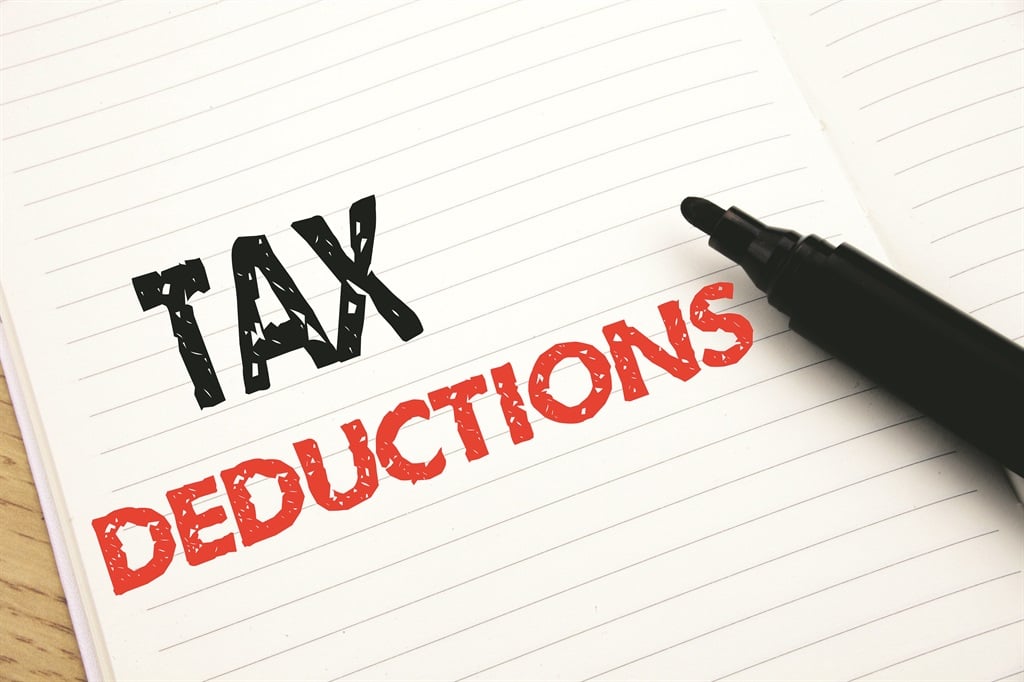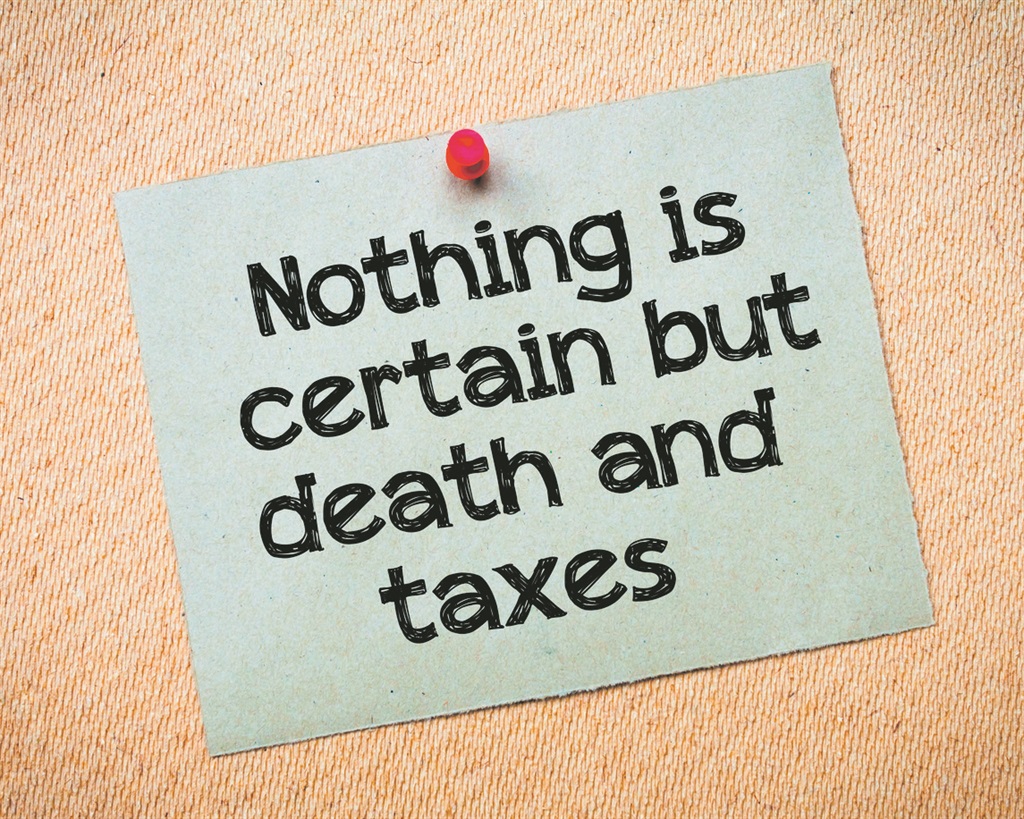
PATRICK WRITES:
I need help in reducing the tax payable on my investments, which are mostly cash in the form of fixed deposits ranging from short to medium term. I find it very strange that I still have to pay tax on the money invested in commercial banks.
My financial situation is good, I took early retirement and am 52 years old. I have an adequate monthly pension which increases each year and includes medical aid. My children are all independent and I have more than enough cash reserves/ petty cash/ emergency fund. How can I be more tax efficient?
CITY PRESS REPLIES
On a positive note, you know you are financially sound when you have a tax problem! Any income is taxable, whether that is a salary, interest (including from a bank) or rental. You also pay tax when you sell an asset for more than you paid for it (capital gain).
In order to pay less tax, you need to look at diversifying your investments across various assets as well as using tax efficient products. A warning, however, is to watch out for paying higher fees to pay less tax because often the tax benefit is offset by higher fees. It would be worth consulting with a financial planner, ideally one who charges for time rather than taking a fee on the product.
A FEW THINGS TO CONSIDER:
Income tax on interest: Any interest earned on your investment is included in your gross income for that tax year, even if you have reinvested the interest. You do however qualify for an interest exemption, so you will not pay income tax on the first R23 800 of interest earned if you are under the age of 65, or R34 500 if you are over 65. Depending on your interest rate you could invest up to around R450 000 before you pay tax.
Diversify into equities: You could invest in shares or an investment portfolio that invests in equities (shares generally listed on the JSE). This can be more tax efficient than earning interest as your returns are made up of capital gain and dividends. The other advantage of investing in equities is that over time it tends to outperform cash and would be preferable if you plan on leaving the money invested for more than five years. The downside is that the value of equities/shares can fall in the short term, so it is only for money that you can leave untouched for five years.
Dividend tax: Dividend tax on any dividends you receive. Dividend withholding tax (DWT) is levied at 20% of the dividends earned and is paid by the company that declares the dividend directly to the Receiver of Revenue so it is not added to your taxable earnings, unlike interest income.
Capital gains tax: Capital gains tax (CGT) is only paid when you sell the investment. CGT is calculated on the growth between what you paid compared with the price you sold. The inclusion rate for capital gains tax is 40% and the first R40 000 of capital gains is exempt from tax. What this means is that 40% of your profit above R40 000 is taxable at your marginal tax rate. For example, you bought shares for R100 000 and sold them for R300 000 giving you a profit of R200 000. You deduct the R40 000 exemption leaving you with R160 000. Forty percent (R64 000) is taxable at your marginal tax rate. If your marginal tax rate is 30% then you would pay R19 200 tax on R200 000 profit.
- You pay no tax (no interest, dividend or capital gains tax) on any investment that is housed in a tax-free savings account. The problem is that you can only contribute R33 000 per annum to a TFSA to benefit from the tax exemption. But it is worth using that facility and adding to it each year. You could also open an account in your spouse’s name.
Retirement annuity: If there is a portion of the money that you do not need to access, or earn an income from, you could consider a retirement annuity (RA). This may sound strange to a retired person, but there is no age restriction on taking out a retirement annuity. There is no tax payable on the growth of the investment and your contributions are tax deductible from any income you receive. You could select retirement age as 65 at which time your tax rate will reduce as per the tax tables which are more favourable to people 65 years and older. At that stage you could withdraw one-third of the investment and receive an income from the remaining two-thirds. You need to make sure you select the most cost-effective retirement annuity, a maximum of 1% fee per annum, otherwise the tax benefit gets used up in fees.
Living annuity: As you are retired you could invest in a living annuity. This is an investment specifically designed to provide income in retirement. The advantage is that like an RA there is no tax inside the investment, but you do pay tax on the income you withdraw each month. However, you only have to draw up to 2.5% per annum, so this helps if you do not need the full income. Again, be careful about fees as living annuities can be expensive.
Endowment policies: These can be attractive if your tax rate is above 28% as it is taxed at the company rate within the fund and paid out after tax. However, if this is higher than your current tax rate, that may not be worthwhile. These products also tend to attract high fees.
COSMOS WRITES:
I took a mortgage bond on a flat in 2014 for
R300 000. The monthly repayment was R3 100, but I opted to pay R3 500 monthly directly from my salary as this option was cheaper than a bank debit order.
By the end of September this year, the money I have paid will be R168 000. The remaining amount to settle the bond is currently R276 000. I have saved enough to settle this amount in my 32-day notice account. I am currently earning about R1 300 on interest and this interest goes up every month as I also invest R9 000 monthly. If I choose to settle the bond I will not earn that interest, but I can start saving about R15 000 every month. Should I settle or use the interest towards the bond? I am not in need of immediate cash and I have a R20 000 emergency fund.
CITY PRESS REPLIES:
- By settling your bond you immediately save at least 10% per annum or higher, depending on your mortgage interest rate. Your current situation is such that you are paying the bank more interest than you are receiving from it and your investment will eventually reach the tax-exemption ceiling where you will start to pay tax .
As you do not need the cash and have an emergency fund, it makes sense to use the funds to settle the mortgage. The only recommendation would be to keep the mortgage facility open by keeping around R10 000 outstanding. This is a great credit facility should you want to buy another property for example or buy a car. It means the R276 000 you used to settle the mortgage is still available as a credit line.
In terms of the additional R15 000 per month you would now have, you need to consider investing in other assets, not just cash. Investing in equities through unit trusts or exchange traded funds like Satrix will provide you with capital growth over time. You could start a monthly debit order and use a portion of the R15 000 per month that you can leave for at least five years to grow.
This is also a good time to review your overall finances to ensure you have all aspects of your finances covered including insurance, retirement, children’s education.
CECELIA WRITES:
I am almost 60, I am single with no dependants. I retire in three years. I have a pension and no debt. Recently I had a tax-free investment payout of just under R50 000. How do I prepare for retirement by avoiding all unnecessary taxes and costs?
CITY PRESS:
The best way to avoid tax is to wait until retirement. On retirement you are able to take up to R500 000 tax free. Depending on your retirement fund structure you will either be limited to taking one-third of your retirement benefit as a lump sum (pension fund) or you can take the full amount (provident fund).
In the case of a provident fund, any amount above R500 000 will be taxed unless you transfer it to an annuity such as a life/guaranteed annuity or living annuity. Although the capital would not be taxed if you transfer to an annuity, the income you receive from those annuities will be taxable.
The most important decision will be in choosing your financial adviser. It is important to find a financial planner now, before you retire, so that you can prepare properly for retirement. As you want to minimise product costs in retirement, there are financial planners who work on a fee or retainer basis rather than charging a percentage of your investment.
In terms of the R50 000 you recently received, you need to decide what you want to do with it. If you need it in the short term, you can invest in a bank investment. As long as you do not earn more than R23 800 in interest you will not pay tax. If you are looking for a longer-term investment, then it is worth investing R33 000 into a tax-free savings account, which you can add to each year.
ANNA WRITES:
I have been paying a garnishee order from September 2013 for R500 per month. Now when I queried it, it looks like I overpaid. How will I know that I have been billed correctly as the opening amount was about
R17 000 and the debt ended a month ago?
CITY PRESS REPLIES:
The amount you needed to pay would depend on various factors including interest and fees. It is important to get the schedule of payments reviewed.
Consumers can contact the office of the Credit Ombudsman for free assistance if they experience any issues relating to credit agreements with non-bank credit providers, such as clothing and furniture retailers as well as microlenders, fraudulent listings, emolument attachment orders (“garnishee orders”) or general complaints about their credit bureau listings.
The office can be contacted on 0861 66 28 37;
Website creditombud.org.za;
Email at ombud@creditombud.org.za
Or send an SMS to 44786 and they will call you.




 Publications
Publications
 Partners
Partners










